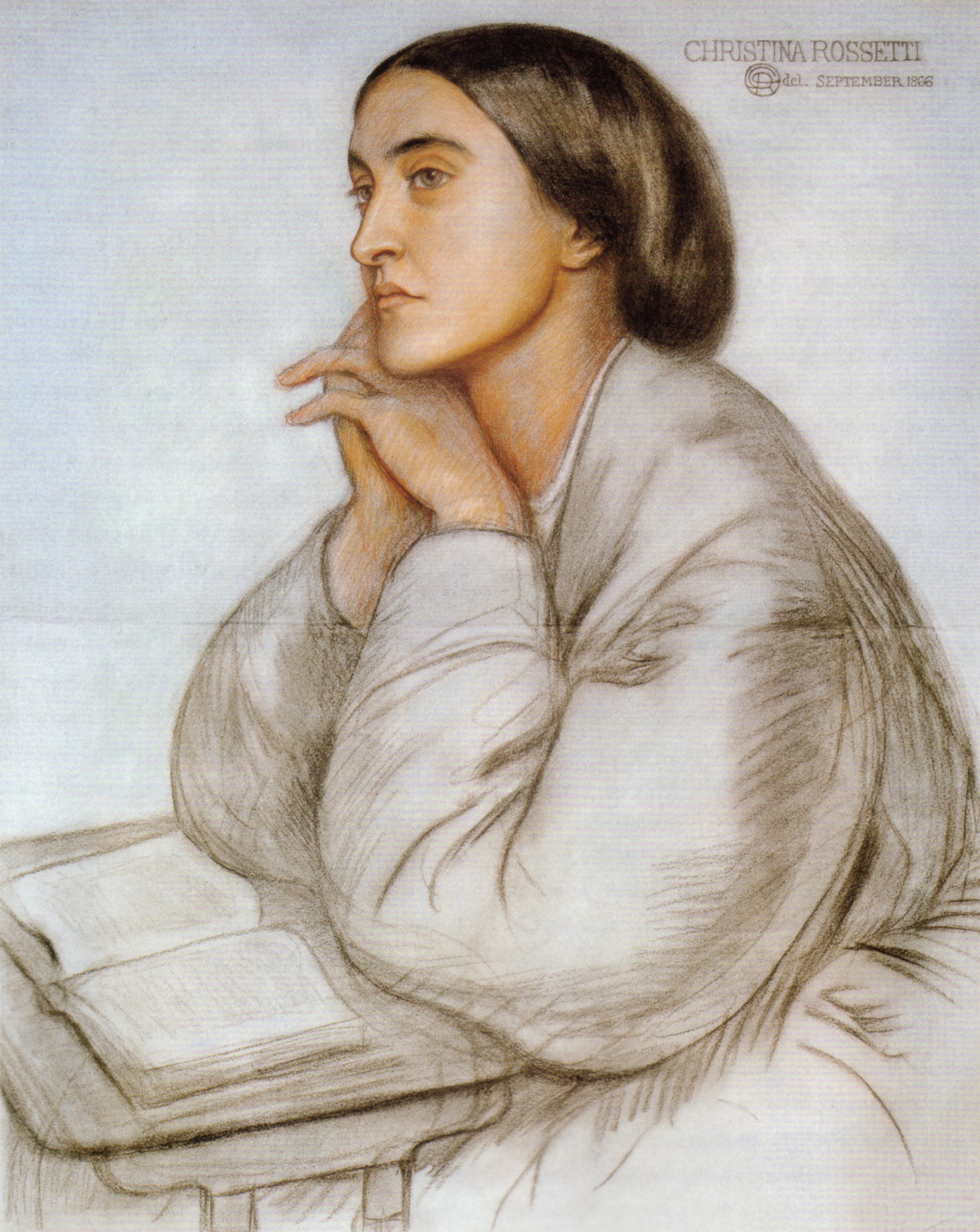Featured Poem: I wish I could remember that first day by Christina Rossetti

We enjoy a touch of the Romantic this week with a Featured poem from one of the most enduring Victorian poets, Christina Rossetti.
Born in London to Italian parents in 1830, Christina Rossetti was the youngest of an extraordinarily gifted family.
She and her three siblings all enjoyed successful writing careers, her eldest brother Dante also following in the footsteps of their father, Gabriele Rossetti, to become a celebrated artist. Their mother, Frances Polidori, was a trained governess and committed herself to developing the intellectual excellence of her children, proving successful not only with Christina's reverence as one of the greatest poets of the Victorian era and Dante's success as an artist and poet, but elder daughter Maria also wrote a well respected study of Dante and William, a prolific art and literary critic, was to become the memoirist of the Pre-Raphaelite movement.
In addition to their mother's studies in religion, classics, fairytales and novels, the family home was often full of visiting Italian scholars, artists and revolutionaries, and the children were exposed to the influence of many Italian writers as well as the works of John Keats, Walter Scott and Ann Radcliffe.
Christina's childhood was a happy one, peppered with visits to the nearby Madam Tussauds, London Zoo and Regent's Park, but in the 1840s her father's health brought the family into severe financial difficulty when he was forced to give up his post at King's College. Maria and their mother took up teaching jobs to support the family, and with William working and Dante at art school, Christina became increasingly isolated at home.

Portrait of Rossetti by her brother Dante
She suffered a nervous breakdown at 14 with bouts of depression and illness which led her to leave school. It was during this time that religion, which would colour her writing so much, became an important devotion in the lives of Christina, her sister and mother.
Christina is said to have dictated her first story to her mother before she had even learned to write and had penned over fifty poems by the age of 16, which her sister transcribed into a notebook. Throughout her teens Rossetti experimented with different forms of verse, all of which were heavily influenced by her mother's teachings in religion and folk tales.
At the age of 18 she published her first two poems in Anthenaeum and became a contributor to The Germ, the literary magazine which her brother William edited.
Rossetti's most famous collection Goblin Market and Other Poems was published in 1862 to critical acclaim and established her as a successor to Elizabeth Barrett Browning, who had died the year before, as the most prominent female poet of the era.
Throughout her lifetime Rossetti's work was constantly compared to that of Elizabeth Barrett Browning and many have pitched one against the other in contention for the greatest female poet of the era, but the endurance of both poets' works have proved the individual merits of both poets should be celebrated.
While Browning's poetry is thought to be more intellectual and political, Rossetti is said to have a greater lyrical gift, mastering tone, diction and form under the guise of simplicity, indeed Rossetti's lyrical legacy is secure in the classic Christmas carol In the Bleak Mid Winter.
I wish I could remember that first day is taken from the longer poem Monna Innominata, A Sonnet of Sonnets, published in 1881.
I wish I could remember that first day
Christina Rossetti
Share
Related Articles

Storybarn Book of the Month: Saving the Butterfly
This month, as part of Refugee Week (16-22 June), we've been taking a look back at one of our favourites…

June’s Stories and Poems
This month we are celebrating the natural world, and especially the many wonderful creatures that live within it, with June’s…

April’s Monthly Stories and Poems
Our year of Wonder with The Reader Bookshelf 2024-25 is coming to a close – though we won’t be putting…


